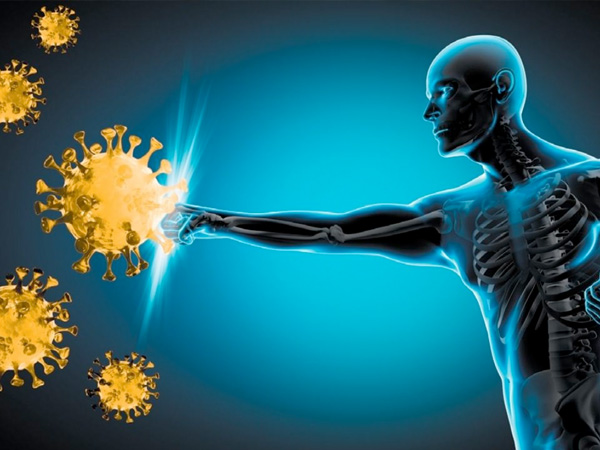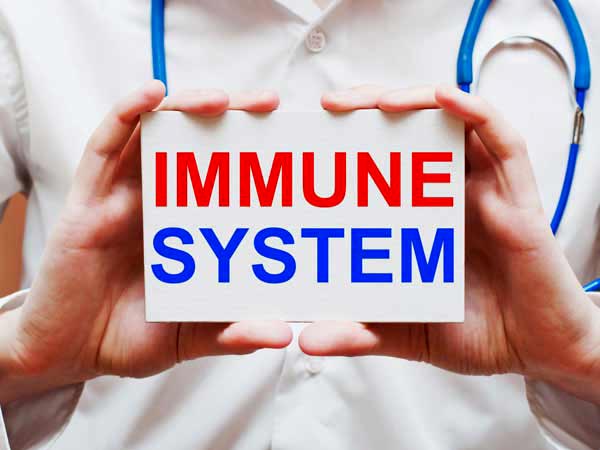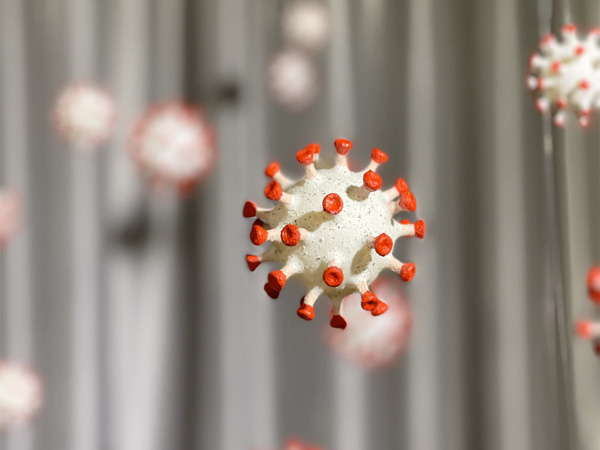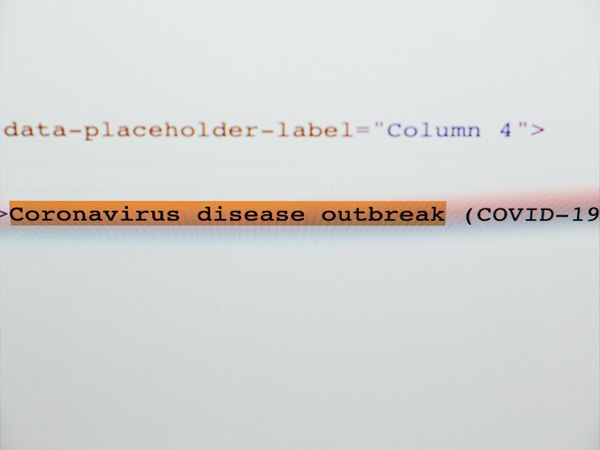
What Are Antibodies?
Antibodies, also known as immunoglobulins are glycoproteins that are naturally produced within the human body by the plasma cells or white blood cells as part of an adaptive immune response against pathogens that are invading the body.
They have the ability to identify a vast range of pathogens and also have a number of clinical applications in the body, considering their most important task is to create autoimmune responses.
Amazing Health Benefits Of Jamun For Diabetes, Weight Loss, Heart, Skin And More
There are five antibody classes which are produced by the body: IgG, IgM, IgA, IgD, and IgE. The first antibody produced in response to pathogens is IgM, a soluble immunoglobulin that causes strong binding of antibodies to the pathogen during their first encounter. [1]
IgG is the second antibody present in an abundant amount that helps neutralise toxins of the pathogens. The third is IgA that triggers an immune response in the mucosa like respiratory lining or gastrointestinal system, along with tears, breast milk and saliva.
Benefits Of Turmeric For Pregnant And Breastfeeding Women
The fourth antibody produced is IgE that triggers immediate hypersensitivity (type 1 hypersensitivity reaction) in response to inflammatory cytokines produced by allergens or re-exposure to a specific type. The functions of IgD are not clearly understood.
Functions Of Antibodies
Antibodies can recognise millions of pathogens due to genetic recombination, a process in which different gene recombines to form a final gene product that can effectively fight against antigen receptors. [2]
Apart from that, antibodies have multiple functions:
- neutralising the infectivity of the pathogens;
- facilitating phagocytosis in which cells called phagocytes ingest the harmful particles such as bacteria or virus within them ;
- antibody-dependent cellular cytotoxicity (ADCC), an immune mechanism in which the immune cells recognise and kill the target cells or microbes which are coated with antibodies, and
- complement-mediated lysis of pathogens, an immune mechanism in which the immune system enhances the ability of antibodies and attack pathogens.
How To Safely Dispose Of Your COVID-19 Waste And Not Harm The Waste Handlers

How Does The Immune System Work?
The immune system is made up of two types of cells: innate and acquired. Innate immunity is the inborn resistance in our body against pathogens due to genetic or other factors. Acquired or adaptive immunity is the one in which the body acquires immunity against a range of pathogens throughout life. [3]
Acquired immunity uses T-cells and B-cells to fight pathogens that have crossed innate immune cells and also make the immunity lasts longer compared to innate immunity. They also remember the pathogens so that the next time when the same pathogens attack, the body can trigger antibodies without any delay and kill them faster. This is the concept of how vaccines work in the body.
ZyCoV-D Could Be The Fourth COVID-19 Vaccine To Get Approval In India
B-cells and T-cells are major constituents of adaptive immunity. B-cells are responsible to make antibodies specific to the pathogens, lock them into it and mark them to be destroyed by the immune cells.
The T-cells have two functions: stimulate B-cells to make antibodies and trigger killer T-cells to kill pathogens which are marked by the B-cells and engulfed in their antibodies.
These two cells play a vital role in the body’s defence system against various diseases, illnesses and infections.

COVID-19 Associated Antibodies
COVID-19 has caused many deaths worldwide due to severe symptoms, especially related to the respiratory system. This makes understanding immunopathology very important to cope with the illness well.
READ RELATED: Losing a daughter to cancer during the Covid-19 pandemic
As COVID-19 was a novel virus to humans, antibodies response to the infection was not developed first, making it difficult for the body to mark and target this infection, and treat the infection.
According to a study, by day 14 after onset of the COVID-19 symptoms, the serum of the patients contain 95-100 per cent IgM or IgG antibodies against the spike proteins of the COVID-19, including antibodies that can neutralise the virus and prevent its replication. [4]
COVID-19: Can Oral Rehydration Solution (ORS) Speed Up Recovery From The Infection?
Though the data available on this regard is limited, some findings do suggest that IgG antibodies specific to COVID-19 spike protein play a great role in controlling COVID-19 infection.
The presence of IgG antibodies to COVID-19 spike proteins also says about the severity of the infection. This may help in understanding the underlying mechanism of the virus and helps in early diagnosis.
A study says that IgM antibodies could be an indicator of early COVID-19 while IgG could be an indicator for past diagnosis and contact tracing. [5]
COVID-19: Can Breath Holding Exercise Make Lungs Healthier?
Considering the aforementioned facts that antibodies are vital parts of the immune system, we can say that tests related to it such as antibody tests can help diagnose the COVID-19. However, the tests may not show results if you have current infections as antibodies take around 1-3 weeks to develop if it is a new pathogen like COVID-19. [6]

What To Know About Evolution of Antibodies
It’s been more than a year of COVID-19 infection since its advent in 2019 November. As it was difficult at an initial stage to develop antibodies against COVID-19 due to its novelty, with time our body developed antibodies against COVID-19 and neutralised its severity in the body.
However, with time, antibodies levels have lowered. Though the B-cells memory is capable of developing antibodies upon reinfection, its nature and quality have not been examined yet properly.
Why A Good Night’s Sleep Is Essential After COVID-19 Vaccination?
A study indicated that after 1.3-6.2 months of the COVID-19 infection, IgM and IgG antibodies against the spike proteins of novel coronavirus have decreased along with neutralising effects of the plasma cells. But, the memory of B-cells remains unchanged even after 6.2 months. [7]
After reinfection, the antibodies have expressed greater resistance and increased efficacy, thus indicating the evolution of humoral immunity, one that is found in extracellular fluids like secreted antibodies.
This says that our body can persistently provide immunity against the antigen due to its evolving nature.
Common Side Effects Of India-Approved COVID-19 Vaccines, And Other Details
To Conclude
Understanding antibodies can help in the development of vaccines that can provide enhanced protection against newly emerging mutants of COVID-19 infection. Though DNA-based vaccines like Sputnik V and ZyCoV-D are thought to protect us against the COVID-19 virus mutation, their efficacy is still a question as they were developed in a short span of time.
Source:








